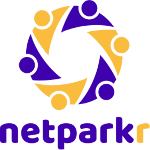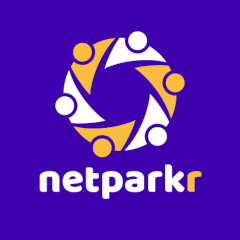South Africa has seen a rise in entrepreneurship due to high unemployment rates, increased cash needs, and creativity. However, many small businesses fail due to inadequate financial support, infrastructure issues, and unsuccessful marketing campaigns. Reece Meyer, a South African software entrepreneur and co-founder of MyBru, has successfully launched a smartphone application and a website for LU JACK, a real estate leasing and selling firm. His website will help expand their reach, simplify audience targeting, and enhance leads and sales. Meyer shares his professional experiences, working style, challenges, and future projects in an interview with 1-grid.
South Africa has experienced an upsurge in the number of entrepreneurs and side hustlers in recent years. Many young people are starting their own businesses or side ventures as a result of the high unemployment rate, the growing need for extra cash, and their inventiveness. Due to inadequate financial support, faulty infrastructures, and unsuccessful marketing campaigns, a large majority of tiny firms fail during the initial two years of existence. But many that have the right guidance, perseverance, marketing campaigns, and resources to get their enterprises online off to a great start succeed greatly.
Young Reece Meyer is an entrepreneur who capitalized on his passion for technology to launch a successful small business, MyBru, a smartphone application. By leveraging on the growth of digital platforms, he has deliberately employed social media marketing in order to build and establish his local firm.
For his business, Reece has created a strong online presence. He’s now been assigned to create a website for another South African business, LU JACK, so they can reach more people in the area. The firm LU JACK specializes in the lease and selling of Western Cape real estate. A website will function as an extraordinarily effective instrument for extending their organization, simplifying the targeting of a certain audience and enhancing both leads and sales.
Reece talks about his professional experiences, working style, challenges faced, and future projects in a quick interview with 1-grid.
Let’s start by getting to know each other a little bit.
I am a South African software entrepreneur and co-founder of the MyBru App, of which I am very proud. I’m a brand- and technology-aficionado who is especially passionate about businesses and entrepreneurship. I had the luxury of studying a copywriting degree at Vega in Cape Town, where I was mentored by excellent lecturers who continuously discovered strategies to encourage the best in me.
We secured finance after around eight months of creating the concept for the MyBru App, and I decided to give up my academic career to start an entrepreneurial venture. After many trials and errors, we successfully published the MyBru App in Cape Town two years later. It shot up to the top ten in the South African Play Store and the number two slot in the Food and Drinks category of the South African App Store quite rapidly. It competed against companies such Steers SA, Uber Eats, Starbucks SA, and MR D Food, among others.
As of right now, the MyBru App 2.0 for Android is almost finished, and customers should start to receive it gradually in early October. It is anticipated that the updated iOS build will be made available soon after that.
When did you make the choice to pursue entrepreneurship as opposed to a typical nine-to-five job?
My parents fostered in me and my twin sister the qualities of effort, inquisitiveness, pursuing our particular interests, developing means to produce cash, enabling us to do it remotely, and characterizing it as “a job” during our formative years. My aspirations were not fulfilled by having to work from 9 to 5, as it would have prohibited me from meeting the previously listed requirements. Despite what many people think, becoming an entrepreneur is not as glamorous as it seems. It’s physically and intellectually exhausting, and often requires me to make some compromises in return for 12 to 16 hours of work a day. But because I get to do what I love every day and call it a profession, I do it (for the most part) with a grin on my face.
Give more details on the MyBru app. When was the idea first proposed, and how has it progressed so far?
In the beginning of 2015, a copywriting classmate and I collaborated to create the MyBru App. We would work on the idea on campus until it closed at about eleven p.m., while others were enjoying Cape Town’s nightlife. We kept doing this for a few months until we were positive that our proposal was ready for investors.
To put it simply, the MyBru App is a cutting-edge mobile platform that connects companies with consumers actively looking for up-to-date information on local food, drink, retail, and entertainment promos and offers. With daily promotions and integrations with popular apps like Uber and Google Maps, the MyBru App makes sure customers have the best possible experience on iOS and Android.
With a monthly organic internet reach of 41,000 and an average of over 19,000 users interacting with brand offerings, the MyBru App offers advertisers the best possible platform to easily connect with interested customers.
The journey has been rough up to this point because technology is advancing so quickly that there is no time for a company to fall behind. Either change with the times or run the danger of slipping behind. This has forced us to keep our company flexible and to keep pushing the boundaries of what we can do with the resources we have available.
In your role as an entrepreneur, what tools do you think are most essential to success?
A lucrative and successful firm may be operated with the help of many industry-specific tools, but there are a few universal tools that I believe are essential for business management in the twenty-first century. Most of it has to do with your internet and digital presence, such as:
Creating a website that stimulates interest in the goods or services offered by your business.
Your website may be found online by potential and current customers with the help of effective SEO.
Make use of an SSL certificate to protect everyone who visits your website.
Make use of social media platforms to stay in touch with your audience, keep customers interested in your product or service, and enhance traffic to your website. In addition, to build rapport with clients and get their input (LinkedIn, Facebook, Instagram, Pinterest, WhatsApp Business page).
a flexible digital strategy built on a strong brand foundation and centered around the needs of the client.
Make use of customer data and analytics to better understand how your company may improve your clients’ quality of life and offer more value.
Do you think the best course of action is to pursue a profession in the digital or technology industry?
100%, I think that for the businesses and brands who have shown early adoption of technology into their infrastructure, the return on investment has already started to show results in an economy that has gotten more and more challenging to maintain in recent years. Instead than adding to the complexity of our everyday lives, technology should be used to improve, simplify, and add value to them.
As more and more technology solutions are adopted and put into practice over the next several months, user education will play a significant role in South Africa, which is still regarded as an emerging market. I think this is an exciting time to be in the technology industry if you’re ready for a challenge and a few gray hairs.
What spurs you on as an entrepreneur to keep going, especially in trying times?
It might be defined as consisting of the following components: one’s team, mentors, support system, and purpose.
My success is sustained by having mentors who hold me responsible and motivate me to keep becoming better, as well as by having a solid support network that is always available by phone or text.
Seeking guidance from mentors and more seasoned business owners who have had similar difficulties has helped me get through challenging times and come to difficult decisions.
You need to surround yourself with a team that is as supportive of you as they are of others when things do not go according to plan.
Lastly, even though there will surely be moments when things go well and times when they don’t, your commitment to your goals and your will to succeed will help you get through these phases. When there is no intention, it is easy to give up and give in to defeat.
Should young South Africans who want to start their own enterprises follow your advice?
There isn’t a better moment to accomplish it than right now.
Provide value by figuring up a way to monetize a problem and finding a solution.
As part of your due diligence in the early stages of ideation, study the market and your competitors to make sure you have a complete picture of the situation before acting.
Create a solid team since trying to do everything by yourself will wear you out.
When feasible, let data lead the way in developing your solution. Accurate data can help you weed out “what people need” and “what you believe will work,” which will save you both time and money.
As you go, don’t be afraid to learn from your errors. Thomas A. Edison failed 10,000 times before he invented the lightbulb.
For more information:
I may be reached at @_reecemeyer on Instagram and LinkedIn.
We gather unique business case studies from all over the internet, to inspire you with a wide range of business ideas. This case study was supervised by our team and it definitely caught our interest. You can find other inspiring business stories here.







